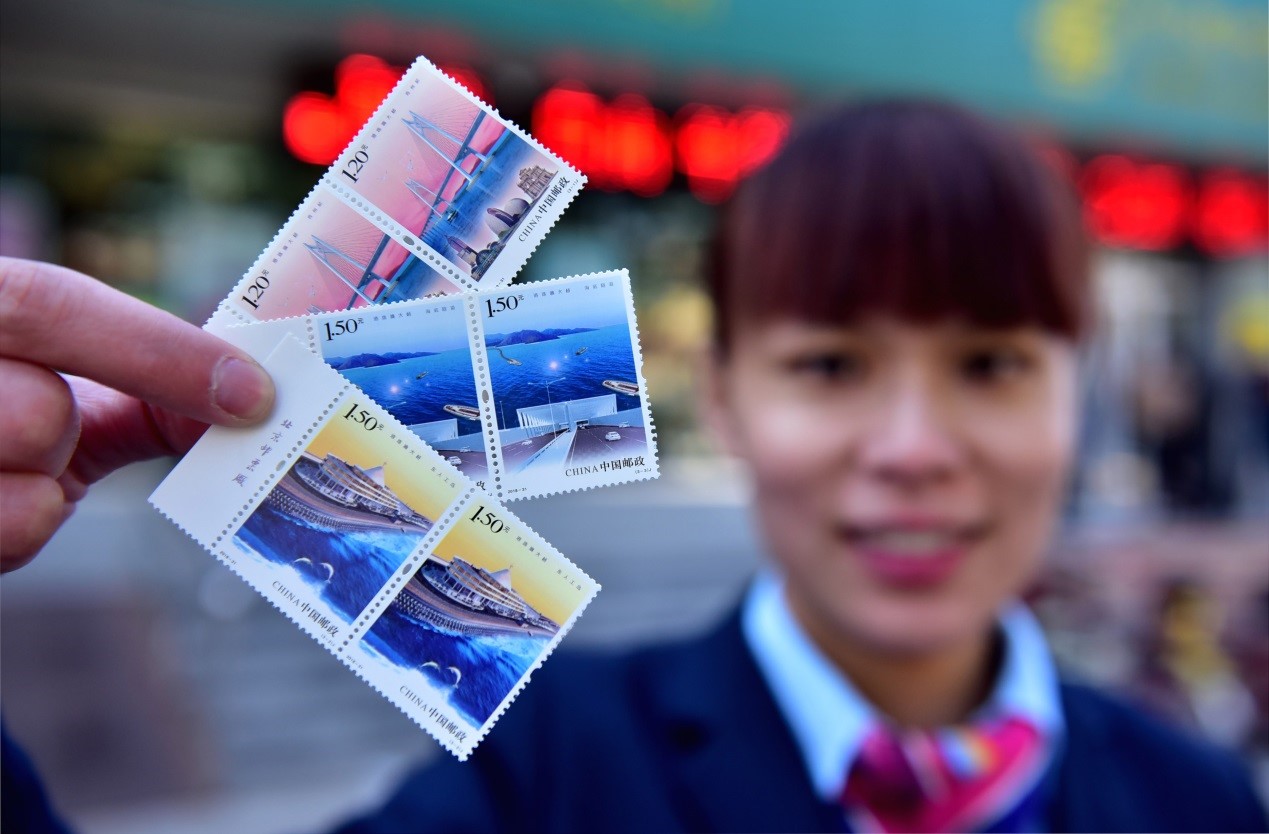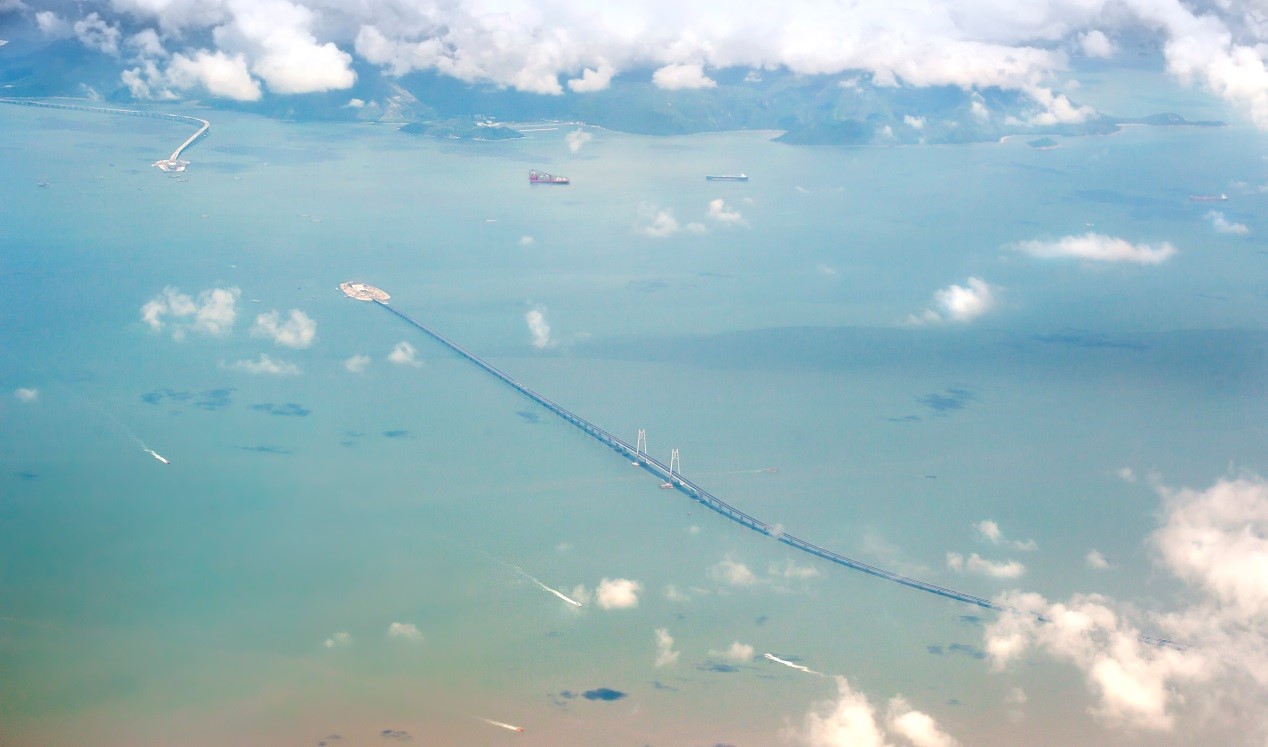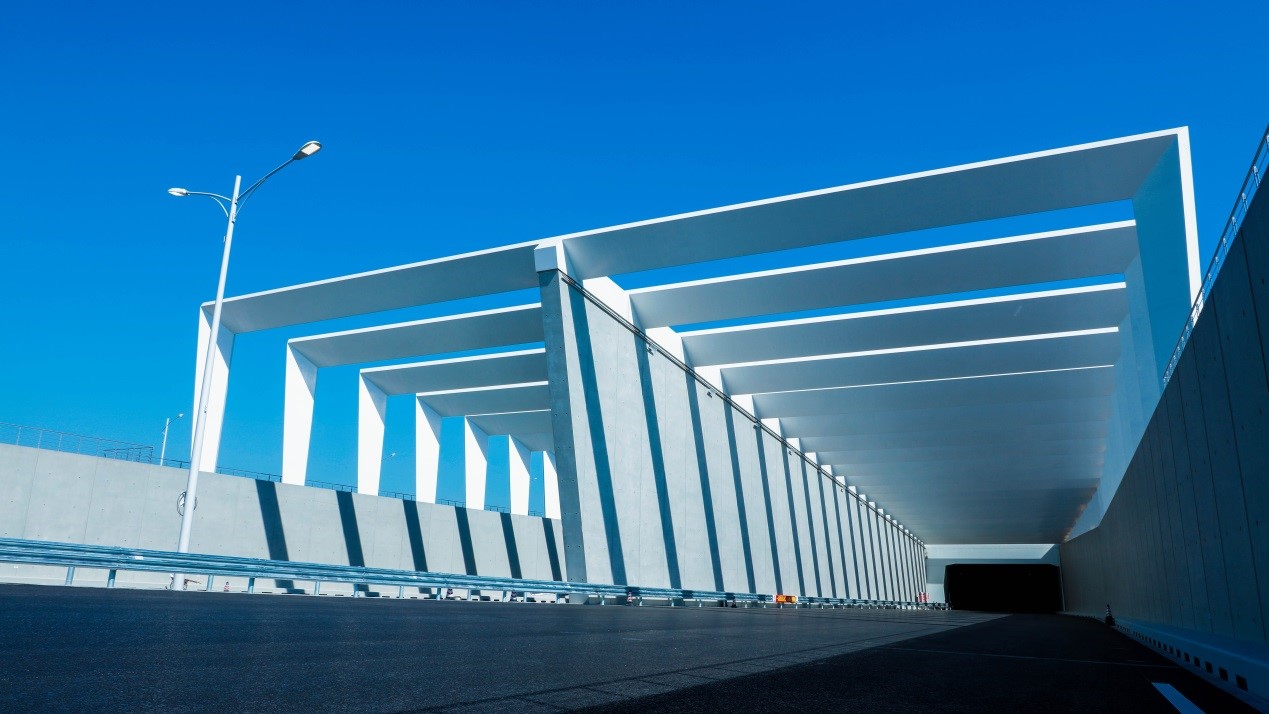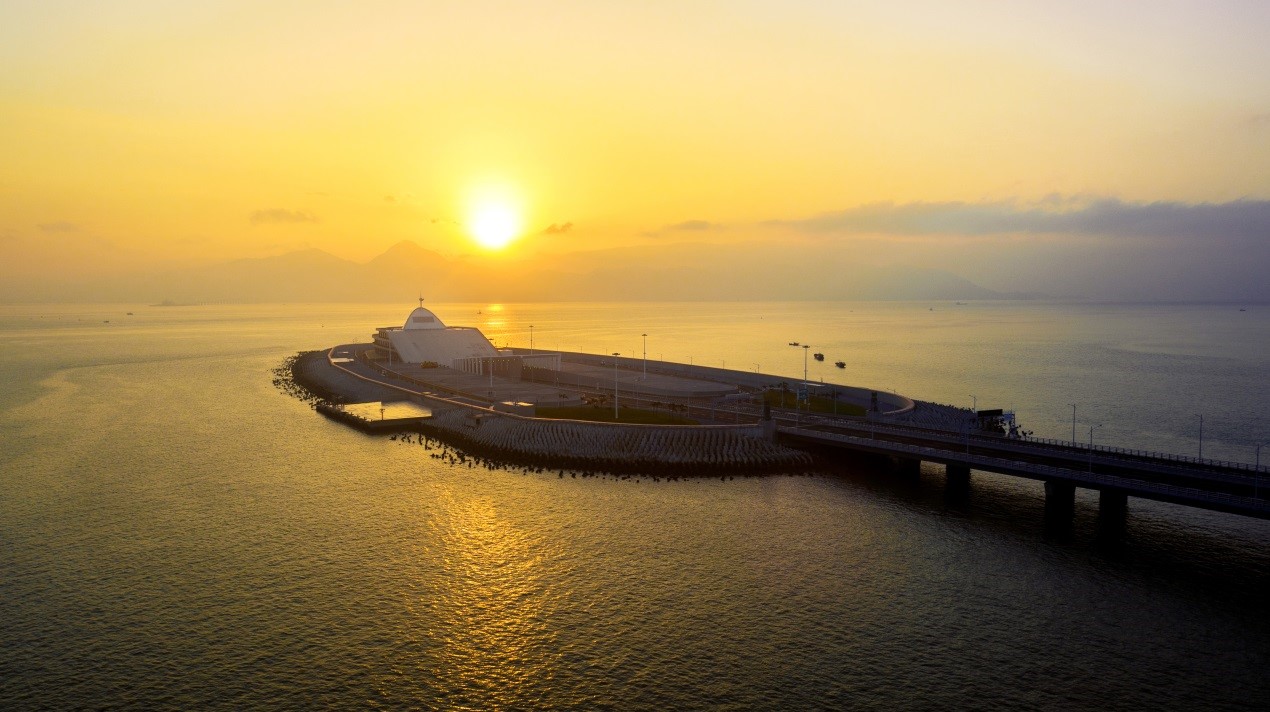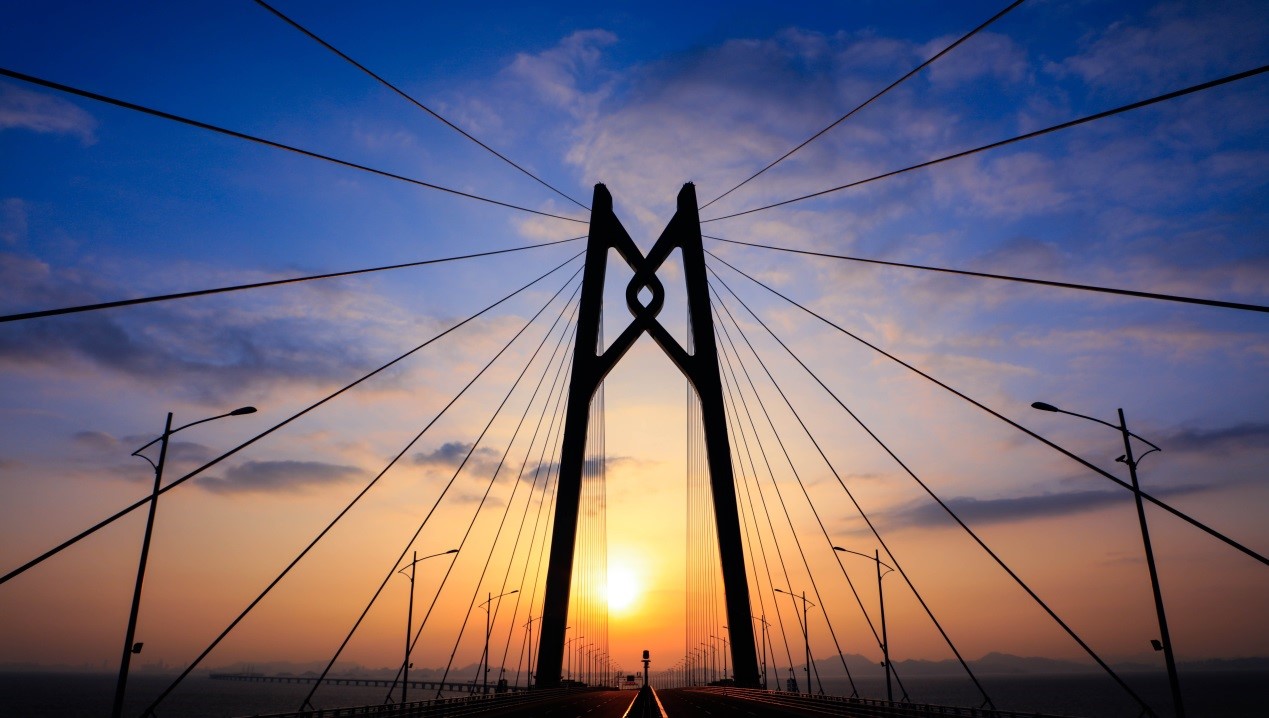Hong Kong-Zhuhai-Macao Bridge: A mega project completed on the path of independent innovation
Driving on the Hong Kong-Zhuhai-Macao Bridge (HZM Bridge), where as far as the eyes can reach, the sea melt into the sky, I became sentimental about my parting from it, a construction that I had been working on for so long.
I’m going to wave goodbye to the bridge after the settlement of relevant bills of the project at the end of this year. Every time I think about this, all the memories of my joy, anger, sorrow and happiness during the construction of the mega bridge over the past 15 years well up in my heart.
Chinese President Xi Jinping attended and addressed the opening ceremony of the HZM Bridge. He said that the bridge would help fulfill dreams, consolidate bonds between people, boost confidence, and promote rejuvenation of our nation.
Builders of the HZM Bridge demonstrated the Chinese nation’s spirit of striving to overcome any difficulties, the national strength, the innovative ability, and the aspiration to be the world’s best, Xi said. These remarks still ring in my head. They are not only Xi’s top marks to the builders of the bridge, but also his earnest expectations of all the Chinese builders in the new era.
The island and tunnel section is the key part of the 55-kilometer project. The undersea tunnel of the project is China’s first offshore immersed tunnel and also the world’s only deep-immersed underwater tunnel so far.
After we were charged 150 million euros ($172 million) by a foreign firm as the consulting fee, we decided to do it on our own, with innovation.
The choice meant a bumpy road ahead for sure, and as a matter of fact, we encountered difficulties in all the four key techniques applied in the construction of the bridge, from the rapid building of artificial islands to the semi-rigid immersed tunnel structure, and from the composite foundation treatment to the installation of deep-immersed tube in deep water.
Rapid building of artificial islands was the first step of the island and tunnel section of the project. We needed to root 120 steel cylinders with a diameter of 22 meters into the seabed and make them form two closed circles, which was also the first technical problem we met in the whole project.
In our experiment in Bohai Bay area, we couldn’t drive the steel cylinders into the seabed anyway. The head-on blow made everyone nervous. We didn’t know if we would make it after all.
We checked the whole procedure and found that we failed because the old and new gears of the steam hammer didn’t work properly. The experiment was successfully completed later after troubleshooting.
And when we finally finished the experiment, all the technicians who look serious and introverted at work burst into tears. At that moment, I had a better understanding of how much independent innovation mean to us.
The bridge recorded our endeavor to pursue independent innovation and witnessed painstaking efforts to overcome numerous difficulties.
The main body of the island and tunnel section of the project consists of 33 immersed tubes, with each weighing as much as 80,000 tons. Each of the tubes represents a different story.
During the installation of the 28th tube, we were confronted with ocean currents that were far more complex than we expected. The huge tube wobbled continuously in the sea. We had to make accurate adjustment constantly so as to ensure perfect connection.
The adjustment needed help from divers. Normally it took up to three times for them to adjust a tube before installation. But the 28th tube wasn’t installed until more than 200 times of adjusting. Thanks to the unprecedented adjustment work, we realized perfect connection eventually.
Today, when we look at the Lingdingyang Bay, we see super-large maritime engineering equipment performing their functions in perfect order, and we know huge immersed tubes were lifted by floating cranes and placed precisely on the predetermined positions of the seabed. A world-class mega project was just finished by us like flow line production. I feel proud of it.
The construction and opening of the HZM Bridge gave me a great sense of happiness and achievement. I know we Chinese engineers in the new era are worthy of the ever-changing times.
At present, various tasks of the project are coming to an end, while the construction of many other major projects are in full swing.
On construction sites of various projects across our country, such as the 14-kilometer-long tunnel at the Pearl River estuary of the railway linking Guangdong’s Shenzhen and Jiangmen, the undersea tunnel of Dalian Bay, and the Shenzhen-Zhongshan Bridge, numerous Chinese engineers are working hard and marching forward towards the realization of the Chinese dream with infinite passion.
Lin Ming is the chief engineer of the island and tunnel section of the Hong Kong-Zhuhai-Macao Bridge project
- Hong Kong-Zhuhai-Macao Bridge sees growing imports, exports
- Hong Kong-Zhuhai-Macao Bridge welcomes over 16 mln passengers in 2023
- Hong Kong-Zhuhai-Macao Bridge: A mega project completed on the path of independent innovation
- World's longest cross-sea bridge opens, integrating China's Greater Bay Area


